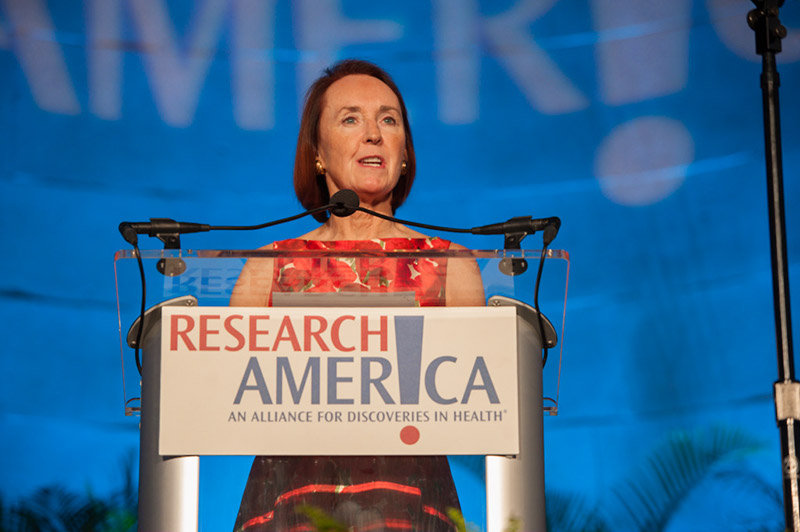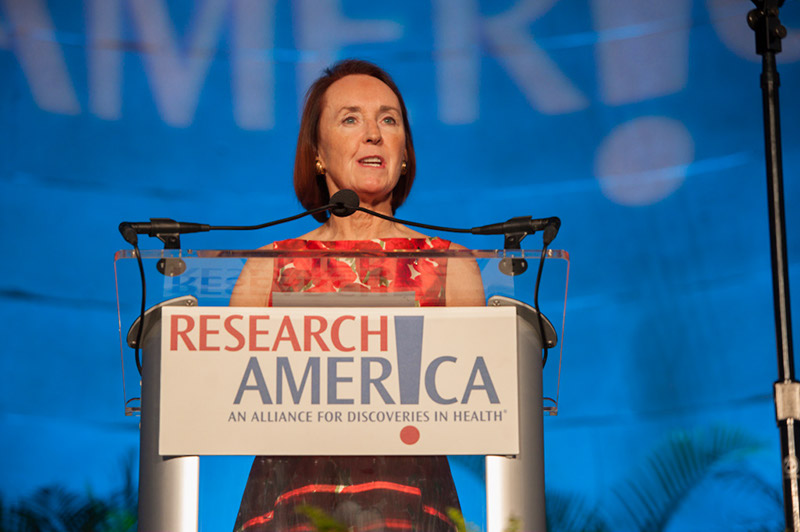Advocacy can be the Secret Sauce Empowering Science


Dear Research Advocate,
I have exciting news! Joe Biden, the 47th Vice President of the United States, will join us at our 21st Annual Advocacy Awards Dinner on March 15 to receive the Gordon and Llura Gund Leadership Award. As he has demonstrated through his leadership of the Cancer Moonshot Initiative, his work in Congress, and in so many other ways, the former Vice President is a true advocate for research. Join us for a remarkable evening.
A foundational goal for this annual event is to spotlight advocates for science — often those who both practice and champion it — as embodying the “secret sauce” that empowers science by driving public and policymaker support. More scientists are becoming comfortable as advocates; the #actualLivingScientist campaign on Twitter reflects this. Check out the truly talented individuals who are putting a face on science and join in! Several online articles are using Research!America-commissioned survey data revealing that most Americans (80%!) cannot name a living scientist. Let’s build on the momentum created by the March for Science and #actualLivingScientist by sharing your story with Congress. Tweet directly to your House and Senate representatives!
One actual living scientist who richly deserves public recognition is environmental scientist and marine ecologist Dr. Jane Lubchenco, who will receive the 2017 National Academy of Sciences (NAS) Public Welfare Medal. Dr. Lubchenco, who served recently as the Under Secretary of Commerce for Oceans and Atmosphere and the Administrator of the National Oceanic and Atmospheric Administration (NOAA), is a superb and highly effective science advocate. Her advice for reinvigorating science support resonates strongly with me:
Stand up for science by demonstrating its value and our relevance. Science needs to be trusted and valued, not seen as imperious, threatening, wasteful or doom-and-gloom. Let’s shed the entitlement rhetoric and show, not just assert, the merits of science. Make science accessible. Speak in plain language, stripped of jargon. Show your warm, caring, human side. Engage citizens in doing science that produces useful knowledge and solutions. Create trust through shared experiences and values.
This advice is sound for public and private sector fueled science alike. On Tuesday, the distinguished panel at our standing-room-only Medical Innovation 101 Hill Briefing did a stellar job demystifying the long and winding road to better health outcomes. Earlier that day, briefing panelist and Research!America Board Member Dr. Keith Yamamoto joined in the release of a NAS report recommending the steps needed to ensure human gene editing is used in a beneficial and ethical manner. During a Research!America alliance member conference call this afternoon, Laura Friedel, the Majority Clerk of the Senate Labor-H Appropriations subcommittee, also touched on gene editing: she believes some members of Congress may attempt to prohibit it in the U.S. Regardless of where you stand on this issue, it underscores the need to take Jane’s advice, follow Keith’s lead, and make public and policymaker engagement part of your science mission.
Speaking of which, this is the right time to ask the members of your congressional delegation to include funding for NIH, AHRQ, FDA, CDC and NSF in their FY18 appropriations requests. Use this editable email to reach all your representatives in one fell swoop, and/or check out their websites (House and Senate) for each office’s appropriations submission instructions and deadlines.
Sincerely,
Mary Woolley




